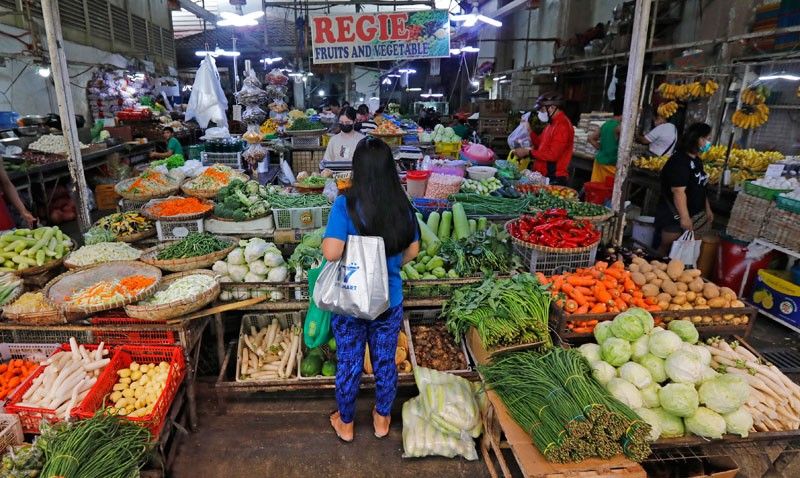Government says food security a priority as supply shortage stokes inflation

MANILA, Philippines — The government is focusing on food security as the projected short supply of lowland vegetables, pork, and fish could stoke further inflation, according to the National Economic and Development Authority (NEDA).
While it expects sufficient supply of rice, chicken, highland vegetables, yellow corn and white corn throughout the year, the agency said deficits are expected in the supply of lowland vegetables as well as pork and fish.
In particular, NEDA said that the local production of lowland vegetables is estimated at 1.6 million metric tons (MT) for this year or 92 percent of local demand.
According to NEDA, pork supply deficit is estimated at 96,800 MT, while the shortage for fish is seen at 319,800 MT.
“To prevent further increases in inflation and protect the purchasing power of consumers, the government is prioritizing food security,” NEDA said.
Headline inflation accelerated to 6.9 percent in September, the highest pace in four years, driven by faster increases in food prices. It averaged 5.1 percent in the first nine months of the year, exceeding the two to four percent target set by the Bangko Sentral ng Pilipinas (BSP).
NEDA said Executive Order 171 issued by the previous administration last May has extended and lowered the tariffs on rice, pork, corn and coal until December of this year.
“The timely unloading of pork stocks from cold storages will complement this measure,” it added.
To augment local supply, it said the government would be providing support to the agriculture sector through lower input costs, development of new farming technologies, financial assistance to farmers, and strengthening the value chain.
Likewise, the Department of Agriculture-Bureau of Animal Industry (DA-BAI) is stepping up efforts to contain and monitor emerging animal diseases.
This includes the timely updating of African Swine Fever (ASF) zoning and fast-tracking hog repopulation, subsidy, and credit programs.
The government is currently undertaking ASF vaccine research and trials.
In addition, DA-BAI is working with stakeholders to address the imbalance in poultry supply and demand.
“Private-public partnerships will be undertaken to uplift the backyard poultry sector affected by AI (avian influenza),” NEDA said.
The agency is also pushing for the Livestock Development and Competitiveness Bill aimed at modernizing the livestock, poultry, and corn sectors in the country.
Among the bill’s provisions is to update the corn industry roadmap and establish competitiveness enhancement funds for the livestock value chain.
- Latest
- Trending





























